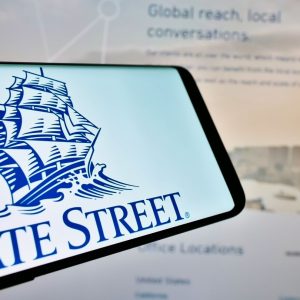Developed in collaboration with the Mid-Sized Bank Coalition of America (MBCA), an industry consortium of US banks with assets between approximately $8bn and $50bn, the Accenture Financial Crime Analytics Utility focuses initially on risk-management capabilities, including anti-money-laundering (AML) compliance. It will be expanded to add additional functionality for members, providing the ability to run analytics-intensive operations for a wide variety of other bank functions, including cybersecurity and third-party risk management.
The analytics utility provides a common, secure platform to which banks can upload their data, enabling them to achieve the benefits of scale they could not accomplish individually. It gives banks access to an application store and data marketplace that provides analytics tools, data models and reports, and application program interfaces (APIs).
Users can publish new innovations for other members to use by uploading them back to the store, which will also provide access to future releases of products and services.
Accenture banking practice managing director Scott Nathan said: “Our new utility helps level the playing field for mid-size banks, enabling them to leverage analytics at scale and apply data-driven insights as only larger banks previously could.
“Clients can take advantage of the most advanced analytics as a fully supported service to transform their data into actionable insights to improve performance and outcomes – and compete more effectively in today’s digital world.”
The utility’s flexible architecture enables the collective sharing of non-competitive data sets, as well as future coordination with the Financial Crimes Enforcement Network’s recently launched FinCEN Exchange, supporting proactive collaboration with regulators and end-users in the law enforcement community. The vision is to enable utility members to share data to help fight financial crime collectively by providing insight into abnormal behavior patterns and other illicit activity detected by member banks, creating a more holistic view of customers from a financial crimes perspective.
Complying with AML and other financial-crimes regulations in the U.S., such as the Bank Secrecy Act (BSA), can be an expensive undertaking. Further, while banks have a lot of available data, their challenge in driving BSA/AML decisions is getting to the right data in the most cost-effective ways. Accenture’s new utility helps enable banks to cost-effectively source and share the right intelligence to make informed decisions on BSA/AML issues quickly and securely.
Among the key benefits that the new utility can provide participating banks are:
Enhanced productivity. Through analytics-driven insights, the utility enables banks to make decisions more quickly and reduce false positives.
Lower compliance costs. The solution can augment the productivity of people working in financial crime prevention and reduce or eliminate reliance on third-party providers for software and system changes, enabling the bank to reallocate resources to higher-value activities.
A reduced overall risk profile. By enabling deeper, actionable intelligence and defensible statistics, the utility can help banks fine-tune their policies, standards, processes and procedures to better monitor and control for BSA/AML risks.
Shared and customizable data visualization capabilities. By providing access to platform-driven research from participating members, the utility eliminates the need for banks to start from scratch, while also enabling them to use existing data from the platform to create and customize their own risk-mitigation dashboards and scenarios.
Standardized data structure. The utility creates a standardized data model to support consistency between key reporting frameworks and regulatory requirements, integrating dynamic updates as regulations change.
Accenture Labs and the Accenture Innovation Center for Finance and Risk contributed to the development of the utility and will continue to enhance its functionality, providing users with access to new applied-intelligence capabilities such as machine learning and natural-language processing.
MBCA executive director Brent Tjarks said: “Mid-sized financial institutions are looking to become more agile and efficient without investing heavily in isolated systems that are increasingly difficult to maintain.
“By empowering banks, regulators and the end-user law enforcement community with access to intelligence derived from a larger data set, the new utility will enable banks to improve compliance processes and reduce risk management costs while helping ensure a safe and flexible financial system.”
A client of the Accenture Financial Crime Analytics Utility, First National Bank of Omaha chief risk officer Nick Baxter said: “Accenture’s new utility represents a major step forward for us and other mid-sized banks. By leveraging the leading-edge analytical tools that the utility will make available to us and working collaboratively with other member banks, we can digitize critical risk functions, curtail increasing costs, work effectively with our regulators, and combat increasingly complex threats.”
Source: Company Press Release






